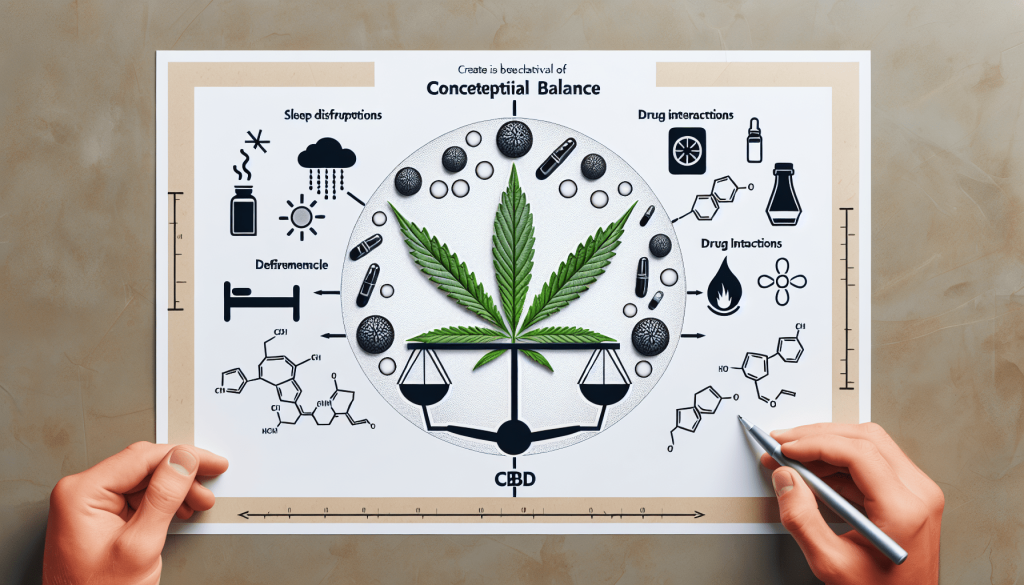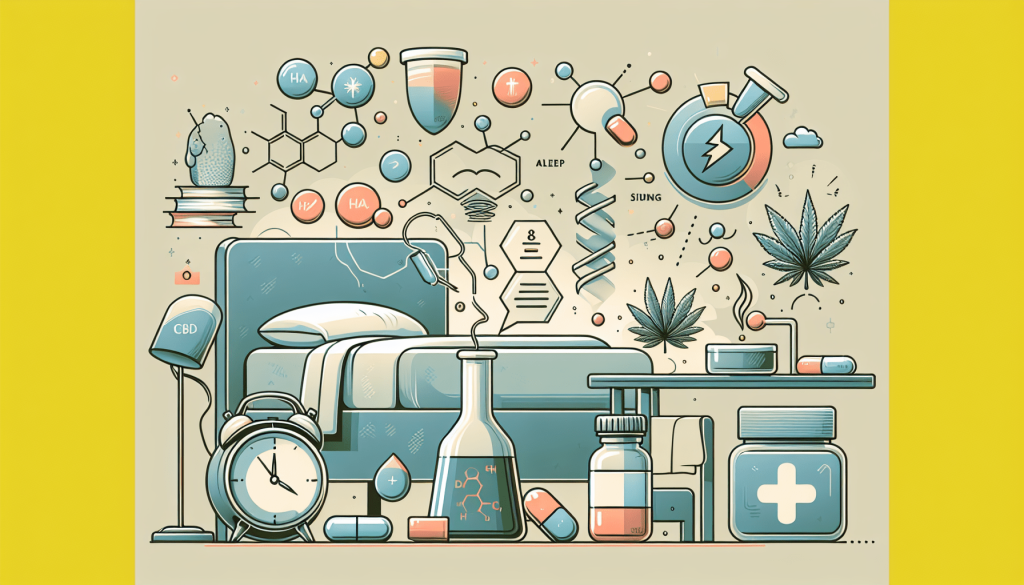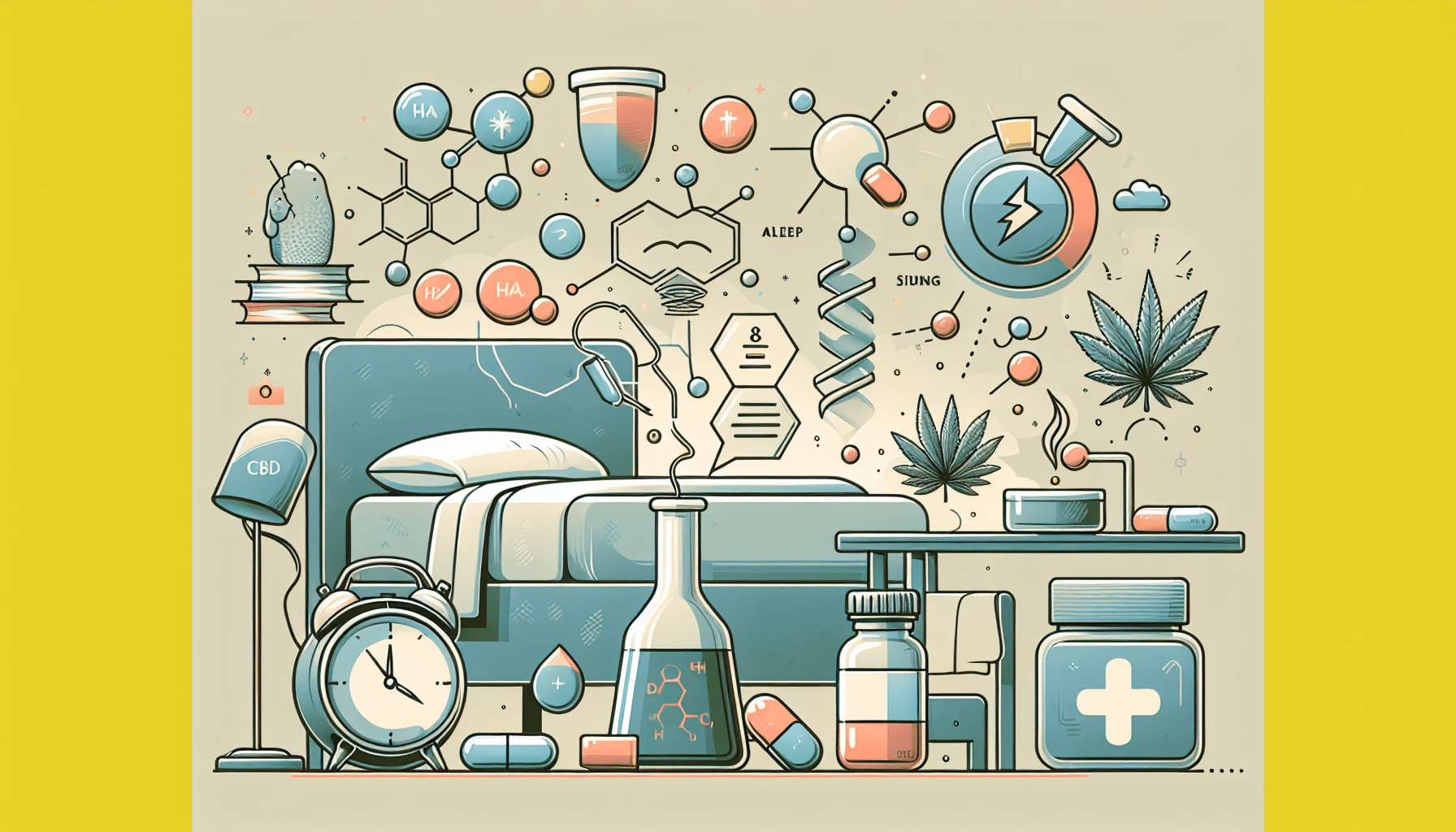Is There A Downside To Taking CBD?
So you’ve heard about all the potential benefits of taking CBD, but you’re wondering if there’s a catch. Is there a downside to incorporating CBD into your daily routine? In this article, we’ll take a closer look at the potential drawbacks of taking CBD and address any concerns you might have. From potential side effects to drug interactions, we’ll explore everything you need to know before deciding whether CBD is right for you. Get ready to make an informed decision about your wellness journey!

Potential Side Effects
Dry Mouth
One potential side effect of taking CBD is dry mouth. This occurs because CBD can temporarily reduce saliva production. While this side effect is generally mild, it can be uncomfortable for some individuals. To mitigate this, it is important to stay hydrated and drink plenty of water when using CBD.
Drowsiness
Another side effect that some individuals may experience when taking CBD is drowsiness. CBD has calming properties, which can induce feelings of relaxation and sleepiness. It is recommended to avoid operating heavy machinery or driving while under the influence of CBD, especially if you are prone to drowsiness or have a demanding job that requires alertness.
Low Blood Pressure
CBD has the potential to lower blood pressure, which can be both beneficial and problematic depending on an individual’s health status. While this effect is generally mild and temporary, individuals with pre-existing low blood pressure or those taking medications to manage their blood pressure should exercise caution when using CBD. It is advisable to consult with a healthcare professional before incorporating CBD into your routine.
Lightheadedness
Feelings of lightheadedness may occur when taking CBD, especially when starting with higher doses or when combined with other medications. This can be attributed to CBD’s ability to interact with the body’s endocannabinoid system, altering blood flow and potentially causing temporary changes in blood pressure. If you experience lightheadedness, it is recommended to sit or lie down until the feeling passes.
Digestive Issues
In some cases, CBD can cause digestive issues such as diarrhea or nausea. These side effects are generally mild and temporary, but they can be discomforting for some individuals. It is advised to start with lower doses of CBD and gradually increase as tolerated to minimize the risk of digestive issues. Additionally, taking CBD with food or adjusting the timing of administration may help alleviate these symptoms.
Drug Interactions
Inhibition of Enzymes
CBD has the potential to inhibit certain enzymes in the liver, which are responsible for metabolizing medications. This means that CBD can affect the way other drugs are broken down and processed in the body, leading to higher or lower levels of these medications in the bloodstream. It is crucial to consult with a healthcare professional before using CBD if you are taking any prescription medications to avoid potential adverse effects.
Interaction with Sedatives
CBD has sedative properties and can enhance the effects of sedative medications, such as benzodiazepines or sleep aids. Combining CBD with sedatives can increase drowsiness, impair cognitive function, and potentially lead to excessive sedation. It is important to exercise caution and seek medical advice before using CBD alongside sedative medications.
Interaction with Anticoagulants
CBD has the potential to interact with anticoagulant medications, such as Warfarin, by inhibiting their metabolism. This can increase the risk of bleeding and alter the effectiveness of these medications. Individuals on anticoagulant therapy should consult with their healthcare provider before incorporating CBD into their routine to ensure safe and effective management of their condition.
Interaction with Antidepressants
CBD may interact with certain antidepressant medications, particularly selective serotonin reuptake inhibitors (SSRIs). Both CBD and SSRIs have the potential to increase serotonin levels in the brain, which can lead to a condition known as serotonin syndrome. It is crucial to discuss with a healthcare professional before using CBD if you are currently taking antidepressant medications.
Regulation and Quality Control
Lack of Government Regulation
In many countries, including the United States, CBD products are not currently regulated by the government. This lack of regulation can lead to variations in product quality and consistency, making it difficult for consumers to determine the safety and efficacy of the CBD products they purchase. The absence of standardized guidelines also makes it challenging for healthcare professionals to provide evidence-based recommendations to their patients.
Contamination and Mislabeling
Due to the lack of regulation, CBD products can be susceptible to contamination or mislabeling. Some studies have found that certain CBD products may contain impurities, such as heavy metals, pesticides, or residual solvents from the extraction process. Additionally, mislabeling has been reported, with CBD products containing more or less CBD than stated on the label. This underscores the need for stricter quality control measures to ensure that consumers are receiving safe and accurately labeled products.
Inconsistency in CBD Concentration
The concentration of CBD in products can vary significantly, even within the same brand. Without proper regulation, there is no guarantee that the CBD concentration listed on the label corresponds to the actual amount present in the product. This inconsistency can make it difficult for users to achieve desired effects or accurately titrate their dosage. It is advisable to purchase CBD products from reputable brands that provide third-party lab testing to ensure the accuracy of CBD concentration.
Potential Addiction and Withdrawal
Addictive Potential
While CBD is generally considered non-addictive, research on its addictive potential is still limited. CBD does not produce the euphoric or psychoactive effects associated with THC, the primary psychoactive compound in cannabis. However, some individuals may develop a psychological dependence on CBD for its perceived benefits or use it as a coping mechanism. It is essential to use CBD responsibly and monitor your usage to ensure it does not become a habit or unhealthy dependency.
Withdrawal Symptoms
Withdrawal symptoms are unlikely to occur when stopping CBD use, especially when compared to addictive substances. However, some individuals may experience mild withdrawal symptoms such as irritability, restlessness, or changes in appetite if they abruptly cease CBD usage. To minimize the potential for withdrawal symptoms, it is advisable to gradually reduce the dosage of CBD before discontinuation..

Limited Research
Insufficient Scientific Studies
Despite the increasing interest in CBD, there is still a limited amount of scientific research available. Many studies have focused on the therapeutic potential of CBD, but there is a lack of comprehensive research on its long-term effects and interactions with existing conditions. More research is needed to fully understand the benefits and risks associated with CBD use.
Limited Understanding of Long-term Effects
As CBD has gained popularity relatively recently, there is a lack of information regarding its long-term effects on human health. Long-term studies that assess the safety and efficacy of CBD are crucial to determine its potential impact on various aspects of health. Until more research is conducted, caution should be exercised when using CBD, especially for prolonged periods of time.
Drug Interactions with Existing Conditions
Due to the limited research available, it is challenging to determine the potential interactions between CBD and certain existing medical conditions. CBD can affect the body’s metabolism of certain medications and may have different effects on individuals with underlying health conditions. It is essential to consult with a healthcare professional before using CBD if you have any pre-existing conditions or are taking medications to ensure it is safe and appropriate for you.
Legal and Ethical Concerns
Varying Legal Status
The legal status of CBD varies from country to country and even within different states or regions. While CBD derived from hemp is legal in many places, CBD derived from marijuana may still be subject to legal restrictions. These variations in legality can lead to confusion and potential legal consequences for individuals who are not well-informed. It is essential to understand the specific laws and regulations regarding CBD in your jurisdiction before purchasing or using CBD products.
Concerns Over Selling Unregulated CBD
The lack of government regulation in the CBD industry has raised concerns over the sale of unregulated or potentially unsafe products. Without proper quality control measures, there is a risk of consumers being exposed to impure or mislabeled CBD products. It is important to purchase CBD products from reputable sources that adhere to stringent quality standards and provide transparent information about their sourcing and manufacturing processes.
Ethical Considerations
The ethical implications of using CBD are subjective and can vary depending on personal beliefs and values. Some individuals may have concerns about the environmental impact of CBD production, the displacement of traditional industries, or the potential exploitation of vulnerable communities involved in the cultivation or extraction processes. It is important to consider these ethical concerns and make informed choices when purchasing and using CBD products.
Potential Misuse and Misinformation
Misleading Claims
The CBD market is saturated with products that make exaggerated or unfounded claims about their benefits. While CBD has shown promise in scientific studies for various health conditions, it is essential to be cautious of products that make extravagant claims without proper evidence or regulatory approval. It is advisable to rely on reputable sources, consult healthcare professionals, and critically evaluate the scientific evidence when considering CBD use.
Lack of Education and Awareness
A lack of education and awareness about CBD among the general public, as well as healthcare professionals, can lead to potential misuse or inadequate guidance. Many individuals may not fully understand CBD’s mechanisms of action, its potential benefits, or its limitations. It is crucial to seek reliable information from credible sources and consult healthcare professionals to ensure safe and informed use of CBD.
Self-medication without Medical Advice
CBD’s availability and accessibility can tempt individuals to self-medicate without seeking professional medical advice. It is important to remember that CBD is not a substitute for proper medical care and should not be used as the sole treatment for serious medical conditions. Seeking guidance from healthcare professionals can help determine if CBD is appropriate for your specific needs and ensure that it does not interfere with any existing treatment plans.
Psychological Effects
Anxiety and Paranoia
While CBD is often used to alleviate anxiety symptoms, some individuals may experience paradoxical effects, such as increased anxiety or paranoia. The mechanisms by which CBD affects anxiety are still not fully understood, and it may have different effects on individuals depending on various factors. If you have a history of anxiety or are prone to experiencing heightened anxiety, it is advisable to start with low doses of CBD and monitor its effects closely.
Mood Changes
CBD can influence mood and emotions due to its interaction with the endocannabinoid system. While many individuals report feeling more relaxed and balanced after using CBD, some may experience unexpected mood changes. These changes can include increased irritability, changes in motivation, or alterations in emotional responsiveness. If you notice any significant mood changes while using CBD, it is important to consult with a healthcare professional.
Psychotropic Effects
Although CBD is generally considered non-psychoactive, some individuals may still experience psychotropic effects. Factors such as dosage, individual sensitivity, and product quality can contribute to the likelihood of experiencing these effects. It is advisable to start with low to moderate CBD doses and choose products from reputable brands that adhere to stringent quality control measures.
Pregnancy and Breastfeeding
Potential Risks to the Fetus or Infant
Due to the limited research available, the use of CBD during pregnancy and breastfeeding is not recommended. CBD has the potential to cross the placental barrier and reach the fetus, which raises concerns about potential effects on fetal development. Additionally, CBD can be transmitted through breast milk, and its effects on infant development are still unknown. Pregnant individuals or those who are breastfeeding should consult with their healthcare provider before considering CBD use.
Cost and Accessibility
Expensive Products
CBD products can be relatively expensive, especially high-quality and specialized formulations. Factors such as extraction methods, product quality, and additional ingredients can contribute to the cost of CBD products. This can make CBD less accessible for individuals on a tight budget or those who require higher doses for therapeutic purposes. It is important to budget accordingly and consider alternative options if cost is a limiting factor.
Lack of Insurance Coverage
As CBD is not regulated as a medication, it is not typically covered by health insurance plans. This lack of coverage can make CBD products less accessible and more costly for individuals who depend on insurance for their healthcare expenses. It is advisable to explore alternative options, such as patient assistance programs or flexible spending accounts, to help offset the cost of CBD products if it is an essential part of your treatment.
Availability in Certain Locations
The legal status and availability of CBD products can vary geographically, especially in regions where cannabis laws are stringent or still evolving. This limited availability can make it challenging for individuals living in these areas to access CBD. It is crucial to familiarize yourself with the regulations and laws in your specific location to determine whether CBD products are legally obtainable and explore alternative options if necessary.
In conclusion, while CBD holds promise as a potential therapeutic option for various health conditions, it is important to be aware of the potential downsides and limitations associated with its use. This article has highlighted some of the potential side effects, drug interactions, regulatory concerns, addiction risks, limited research, legal and ethical implications, potential misuse, psychological effects, considerations during pregnancy and breastfeeding, and factors such as cost and accessibility that individuals should take into account when considering CBD use. It is essential to consult with a healthcare professional, seek reliable information, and make informed decisions to ensure safe and appropriate use of CBD.







